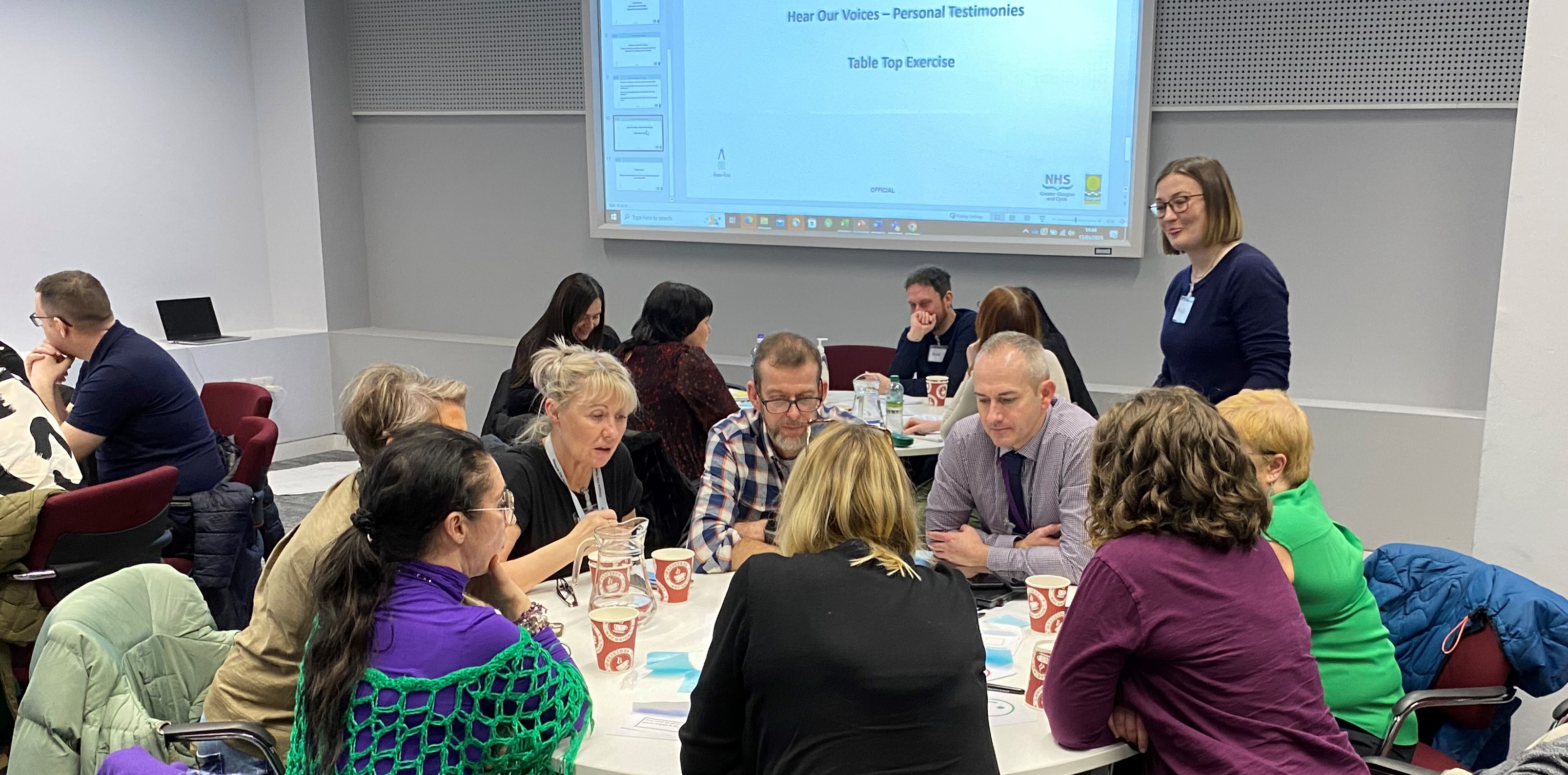Learning about the Positives and Challenges of Implementing Housing First in Glasgow
A recent learning day is helping Glasgow City Health and Social Care Partnership (HSCP) and our partners discuss the positives and challenges of Housing First in Glasgow.
Housing First is a rapid rehousing approach to tackling homelessness amongst people with complex needs, such as mental health or addiction issues. Secure tenancies and intensive support are provided to assist some of the city's most vulnerable people to rebuild their lives, sustain their tenancies and improve their physical and mental health.
By the end of 2022 Housing First had achieved almost 300 tenancies for people previously trapped in the homelessness system due to life traumas and complexity, resulting in long-term homelessness.
On 13 January 2023, our HSCP and the Wheatley Group hosted a Housing First Learning Day. This event brought together an audience of partner organisations that have been active in the development and delivery of Housing First over the past four years.
Eleanor Lee, Glasgow City HSCP, Housing First Service Lead said: “The event was interactive and high energy and provided an opportunity for reflection and learning about the positives and challenges of implementing Housing First in Glasgow. Attendees shared their individual perspectives and experiences to help create a broad understanding of what makes the Housing First programme work positively and what barriers continue to present.”
The event was facilitated by Homeless Network Scotland, with presentations from our HSCP’s Head of Adult Services (Homelessness and Complex Needs), Jim McBride, along with speakers from Police Scotland and Govan Housing Association.
A key part of the day was an afternoon focussed on the voices of service users, with a series of videos of individuals’ thoughts and experience of life in housing first, giving a very powerful, emotive and thought-provoking session.
Jim said: “Our tenancy sustainment rate averages over 80%. This has been achieved by working in partnership, to bring a range of skills and services together giving a strong emphasis on assessment, care and treatment. This approach coupled with the commitment of housing associations and third sector housing first support has made the opportunity for a home and a positive pathway to recovery possible for people referred to our service.
“With a target of 600 tenancies in the lifetime of the Rapid Rehousing Transition Plan, we took the opportunity to celebrate our achievements to date and discuss what’s important in achieving the best outcomes going forward.”

